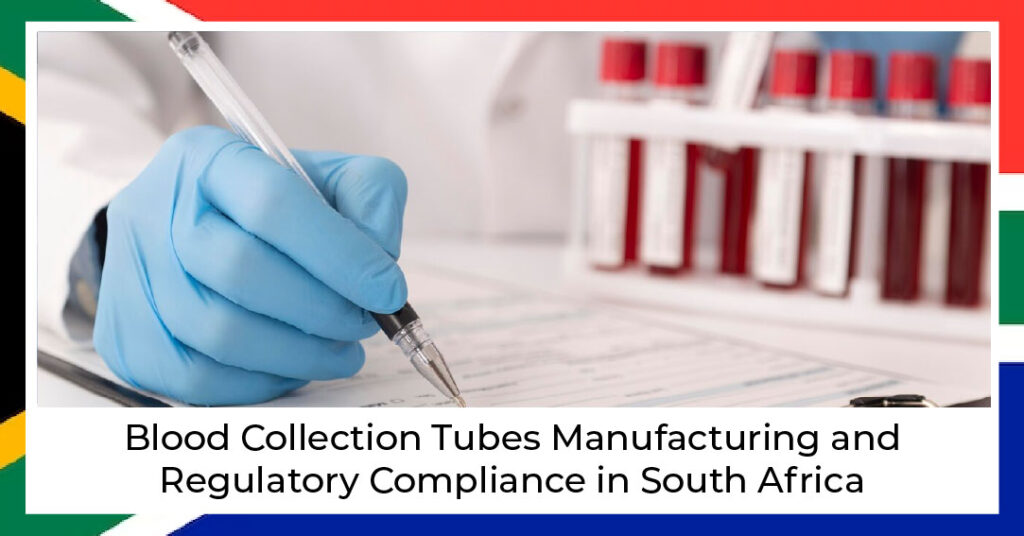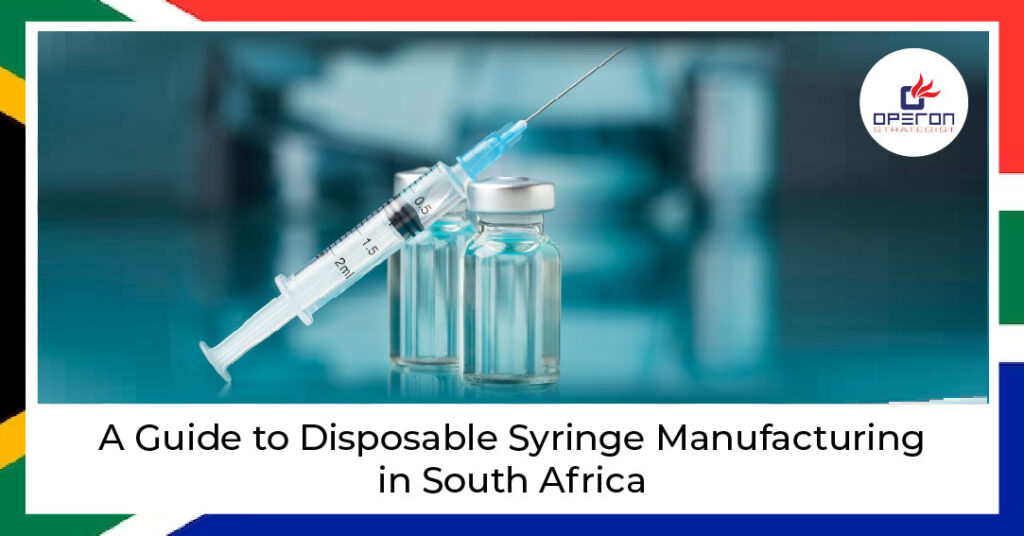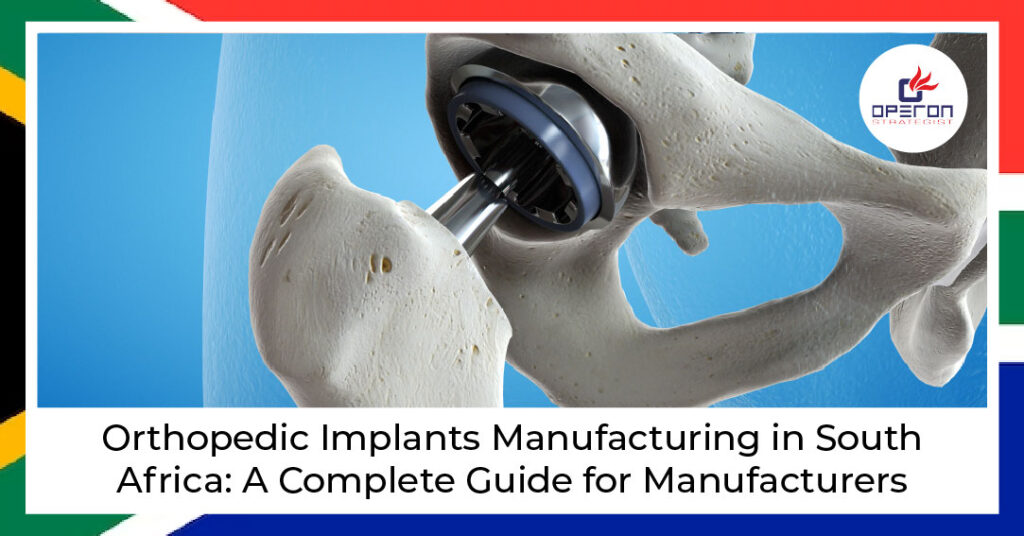What Are Blood Collection Tubes (BCTs)?
Blood Collection Tubes (BCTs) are vacuum-sealed containers used for drawing and storing blood samples for diagnostic testing. They are color-coded based on the additive inside (e.g., EDTA, heparin, clot activators), which preserves the blood sample for specific lab tests.
These tubes are critical for:
- Clinical diagnostics
- Pathology laboratories
- Blood banks
- Research institutions
Looking for Medical Device Manufacturing Consultant
Blood Collection Tubes Manufacturing Process
The BCT manufacturing process involves:
- Injection molding of medical-grade plastic
- Additive filling (e.g., anticoagulants)
- Vacuum sealing
- Sterilization (typically via ethylene oxide or gamma rays)
- Packaging in sterile conditions
Manufacturers must maintain a Class 100k cleanroom environment, adhere to ISO 13485:2016, and conduct quality control tests such as vacuum integrity, additive performance, and shelf-life testing.
BCT Regulatory Requirements in South Africa
South Africa’s medical device regulation is overseen by the South African Health Products Regulatory Authority (SAHPRA). Blood Collection Tubes are classified as Class B medical devices requiring moderate regulatory scrutiny.
SAHPRA Establishment Licensing
To manufacture or distribute BCTs in South Africa, companies must obtain an SAHPRA Medical Device Establishment License. This covers:
- Manufacturing
- Importing
- Distribution
Product Classification and Registration
Though full product registration for Class B devices is rolling out gradually, manufacturers must:
- Justify risk classification
- Provide a Device Master File
- Show ISO 13485 certification
- Supply clinical or performance evidence
Quality and Compliance Standards
Manufacturing must follow:
- ISO 13485:2016 Quality Management System
- Good Manufacturing Practices (GMP)
- Sterile processing protocols
Labelling and Traceability
Labels must include:
- Product name and type
- Additive information
- Manufacturer details
- Batch number, expiry date
- Language: English (with local languages encouraged)
Post-Market Surveillance
SAHPRA requires a post-market surveillance system for monitoring adverse events, recalls, and performance in the field.
Challenges of Setting Up a BCT Manufacturing Unit
Launching a BCT plant involves:
- High upfront capital for infrastructure and equipment
- Regulatory complexity and documentation
- Skilled workforce recruitment
- Facility validation and inspection readiness
Without expert guidance, this can delay market entry and increase non-compliance risk.
Role of Operon Strategist: BCT Manufacturing & Regulatory Consultant
Operon Strategist is a trusted consulting partner for medical device manufacturers across Africa, including South Africa. They specialize in regulatory compliance, plant setup, and ISO implementation for Blood Collection Tube projects.
Operon Strategist Services Include:
- Facility layout as per GMP & ISO standards
- Cleanroom design and equipment selection
- Process flow optimization for BCT lines
✅ SAHPRA Regulatory Consulting
- Establishment license application
- BCT classification and documentation
- Technical file preparation and review
✅ QMS & ISO 13485 Certification Support
- End-to-end ISO 13485 implementation
- SOP creation for manufacturing & quality
- Internal audit and inspection readiness
✅ Post-Market Compliance & Staff Training
- Pharmacovigilance systems setup
- On-site and remote team training
- Risk management and recall protocol
With 15+ years of expertise, Operon Strategist reduces compliance risks and accelerates time-to-market for blood collection tube manufacturers.
Set Up a Fully Compliant BCT Facility in South Africa With Confidence — Speak to Our Project Consultants Now.
Why Local BCT Manufacturing Matters in South Africa
- Reduces reliance on imported products
- Strengthens national healthcare capacity
- Boosts local job creation and GDP
- Aligns with the government’s MedTech localization goals



